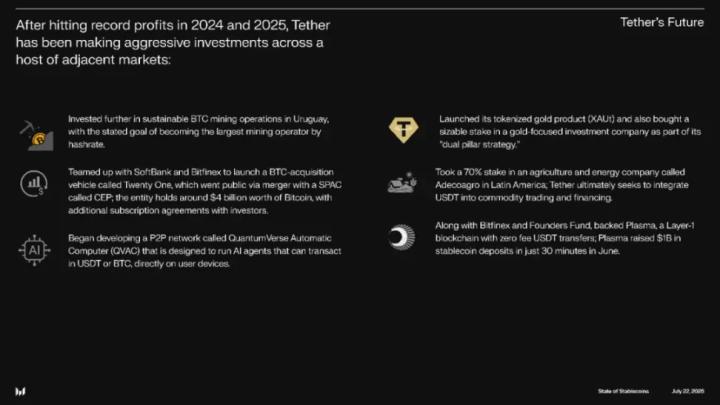U.S. President Trump signed the GENIUS Act in late July, stipulating that stablecoins must be fully reserved with 1:1 cash or cash equivalents, and mandating monthly audits. The CEO of Tether, the world's largest stablecoin issuer, Paolo Ardoino, immediately stated today (24th):
Tether is ready to operate in the U.S. market.
The Tether CEO's declaration is not just a return, but also adds more imagination to the U.S. institutional market, and everyone will certainly think about the commercial collision between Tether and Circle in the United States.
Policy Catalyst and Tether's Return
The stablecoin industry, long troubled by regulatory uncertainty, has finally obtained a clear compliance framework. According to a Bloomberg interview, Ardoino praised the act for "clearly defining the rules of the game" and previewed a complete U.S. strategy within two months.
The new strategy targets banks, payment networks, and high-frequency traders, aiming to make USDT the standard "supplement" for inter-bank settlement and trading. As of mid-2025, USDT circulation has reached $162 billion, with an 18% increase from the beginning of the year, leading Circle's USDC. However, it can be imagined that large banks may issue their own stablecoins through stablecoin issuers.
Tether's Past Experience in the United States
In 2021, Tether was fined about $60 million in New York for non-transparent reserve information and subsequently withdrew from the U.S. The GENIUS Act now requires high-quality liquid assets (HQLA) coverage and a 120-day deadline for adjustment.
Tether has recruited Simon McWilliams, former CFO of payment giant Stripe, and is prioritizing comprehensive audits by the "Big Four" accounting firms. However, its current diverse reserve structure, including precious metals, commercial paper, and crypto assets, will inevitably need significant slimming, simultaneously increasing Tether's short-term cash needs and operational complexity.
Competition After Wall Street's Entry
The passage of the act simultaneously sparked Wall Street's counterattack. JPMorgan Chase, Bank of America, Citibank, and Wells Fargo have successively revealed plans to launch their own stablecoins. Tether CEO Ardoino candidly admitted that in the short term, "traditional banks have a geographical advantage in the U.S.," but emphasized that Tether still leads in technology and global liquidity networks.
Tether reiterated that it is not considering going public, forming a sharp contrast with Circle, which also grew from the crypto space, and announced that after completing compliance, it will expand its U.S. supply tenfold. We'll wait and see.







